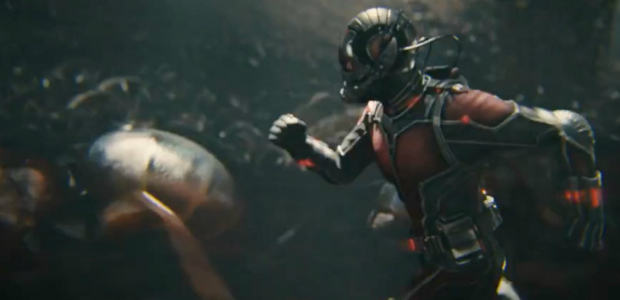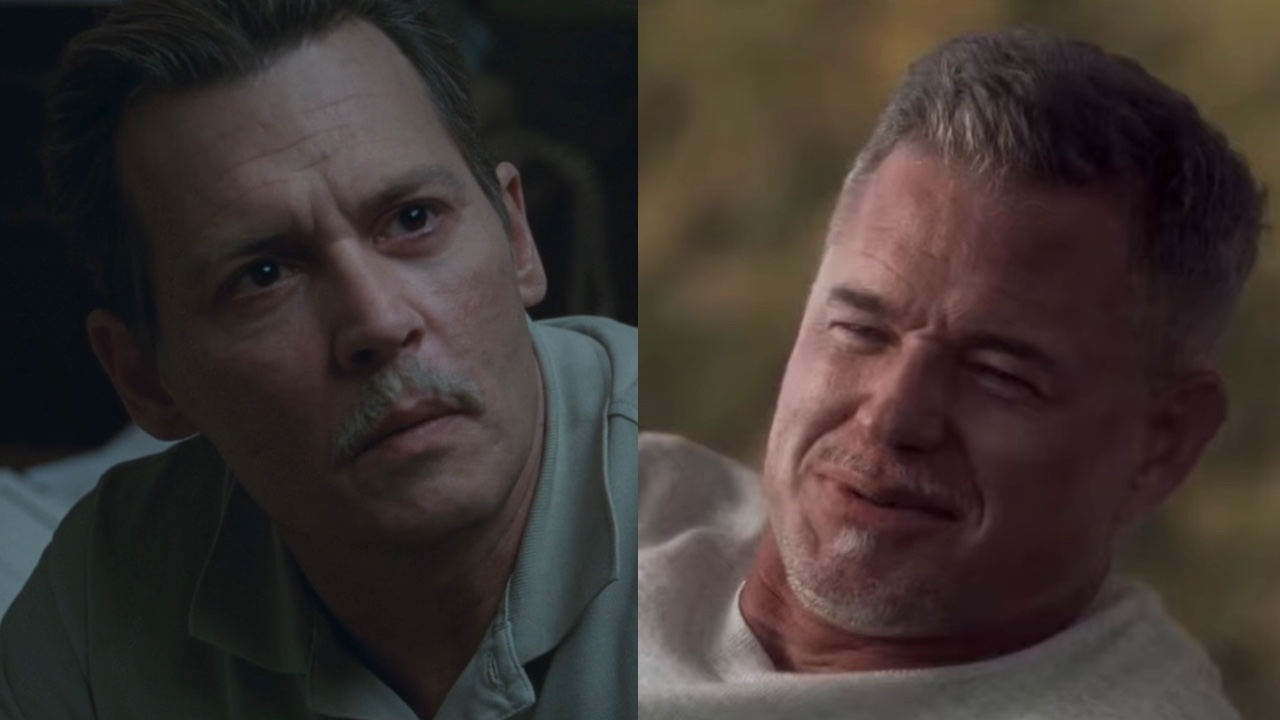While director Peyton Reed’s Ant-Man is the twelfth film to be released as part of the ever-growing Marvel Cinematic Universe, it was originally going to be one of the first. The project was one of the earliest in development when Marvel Studios first began their big blockbuster plans, though it was regularly postponed in favor of expanding other properties instead. For most projects, these delays would be seen as indicative of big problems with the script or a lack of confidence in the material, but the good news is that the finished product is actually a great deal of fun that features a handful of truly terrific performances. Instead, the real effect that the delay has caused is that Ant-Man still feels like a “Phase One” title, and less evolved than the Marvel movies that have been coming out since Joss Whedon’s The Avengers in 2012.
In the same genre-meshing vein as Captain America: The Winter Soldier (superheroes in a conspiracy thriller) and Iron Man 3 (superheroes in a noir detective story), Ant-Man is structured in the form of a heist movie, telling the tale of an aging scientist named Dr. Hank Pym (Michael Douglas) who works with a reformed thief named Scott Lang (Paul Rudd), as well as his estranged daughter, Hope van Dyne (Evangeline Lilly), to help Scott become the incredible shrinking hero known as Ant-Man. His goal is to try and to steal an incredibly dangerous new shrinking formula made by Hank’s former protégé, Darren Cross (Corey Stoll), who has spent years trying to replicate Pym’s research and has gone a bit mad in the process.
On the one hand, it’s somewhat refreshing to see a major big budget blockbuster featuring (appropriately) smaller-scale, self-contained ideas, and to the film’s credit it features some of the best character dynamics that we’ve seen from Marvel yet. The drawback, however, is that it’s all wrapped around a plot that is ultimately very simple and straightforward, while also sharing a few too many similarities with the first Iron Man.
It’s from the larger perspective that Ant-Man has problems with simplicity, but what fuels the film are the creative details in the narrative and the stylistic approach that deliver elements that we’ve never seen before – on beyond just Marvel movies. First and foremost is the ability of the blockbuster’s titular hero to shrink and grow at will with the help of what really is a spectacular-looking suit. In his approach, Peyton Reed truly maximizes on this special gift, and makes each use as exciting as possible. Not only does it lead to some unique fight choreography, with Scott Lang using his powers to evade bullets and enhanced strength to take out opponents, but it opens up fantastic avenues for use of macro photography – giving the audience an enthralling up-close look at what it’s like to be sucked into a vacuum cleaner bag, invade an ant hill, and disrupt complicated technology from the inside of a server.
Further taking advantage of the material presented, the movie also capitalizes on the classic heist set-up by putting together an ensemble team of both interesting and funny characters that all interact well within the mechanics of the story. The always-affable Paul Rudd is a tremendous fit for Scott, not only because he inherently makes the character witty, charismatic and likable, but also because he effectively brings out the dramatic side of the character – finding him as a habitual screw-up who is really willing to do whatever he can to be reunited with his daughter, Cassie (Abby Ryder Fortson).
This theme of “fathers and daughters” is further explored in the relationship between Michael Douglas’ Hank and Evangeline Lilly’s Hope, and it’s easily one of the strongest parts of the film - driven by two great performances. The former is both distant and over-protective of his only daughter since losing her mother years ago while on a mission for S.H.I.E.L.D., and the latter is strong-willed, resilient, and knows that it should be her wearing the Ant-Man suit instead of Scott. It’s a terrific and exciting conflict/relationship that adds legitimate depth to the feature, and even serves to enhance the connection between Hank and Corey Stoll’s Darren Cross – presenting Hope with the most extreme version of disconnection with her brilliant scientist father, and ultimately help them rebuild what they lost.
Deserving of special mention is Michael Pena, playing Scott Lang’s former cellmate and partner in crime. Admittedly, the fast-talking, dim bulb character is set up for success, operating as the movie’s greatest source of comic relief, but the actor truly knocks it out of the park and delivers gold every time he’s on screen – be it prepping waffles for his crew before a job or whistling the appropriate “It’s A Small World” while under cover as a security guard. Ant-Man is a film full of scene-stealers, including the ants that are under the eponymous character’s control, but it’s easy to argue that Pena walks away king of the hill.
Your Daily Blend of Entertainment News
Peyton Reed is able to orchestrate all of these elements well enough to make Ant-Man function as a fun midsummer blockbuster, but from a straight narrative perspective it feels like we should be getting more. Not only is the basic drive of the plot far too reminiscent of Jon Favreau’s Iron Man - featuring a story about a scientist who needs to prevent his greatest invention from being proliferated as an immensely dangerous weapon – but the movie also hits its beats without very many twists and thrills beyond the presentation. Simply put, we’ve come to expect more from this department in comic book adaptations.
In the last seven years, Marvel Studios has managed to make some of the most spectacular blockbusters we’ve ever seen, and a couple clunkers. Ant-Man is neither of these things. It’s a better than average caper with some really great performances and unique style that also further expands on the breadth of the Marvel Cinematic Universe. Accept that, and you’ll enjoy yourself just fine.

Eric Eisenberg is the Assistant Managing Editor at CinemaBlend. After graduating Boston University and earning a bachelor’s degree in journalism, he took a part-time job as a staff writer for CinemaBlend, and after six months was offered the opportunity to move to Los Angeles and take on a newly created West Coast Editor position. Over a decade later, he's continuing to advance his interests and expertise. In addition to conducting filmmaker interviews and contributing to the news and feature content of the site, Eric also oversees the Movie Reviews section, writes the the weekend box office report (published Sundays), and is the site's resident Stephen King expert. He has two King-related columns.

